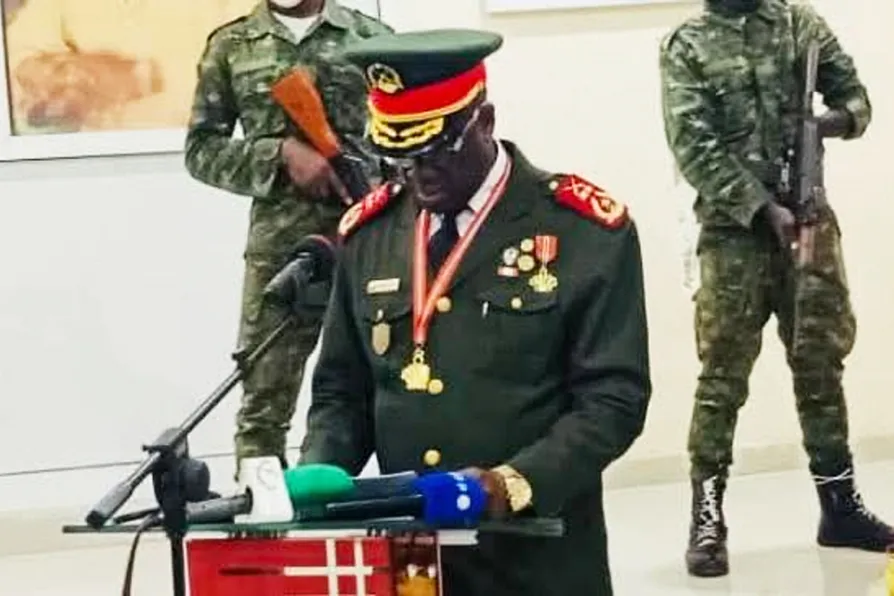
 In this photo taken from video provided by TGB Guinea-Bissau, Guinea-Bissau's new junta leader general Horta Inta-A, takes an oath of office in Bissau, Guinea-Bissau, November 27, 2025
In this photo taken from video provided by TGB Guinea-Bissau, Guinea-Bissau's new junta leader general Horta Inta-A, takes an oath of office in Bissau, Guinea-Bissau, November 27, 2025
GUINEA-BISSAU’S ousted president Umaro Sissoco Embalo arrived in Senegal on Thursday a day after a group of military officers seized power in a coup.
Senegal’s Foreign Ministry said in a statement on Thursday that the Mr Embalo had arrived in Senegal after they had negotiated with authorities in Guinea-Bissau to secure his release.
The statement said: “The government of the Republic of Senegal reaffirms its readiness to work alongside the Economic Community of West African States (Ecowas), the African Union and all relevant partners, with a view to supporting dialogue, stability and the rapid restoration of constitutional order and democratic legitimacy in this brotherly nation.”
Mr Embalo was removed from office on Wednesday after a group of military officers announced they had grabbed “total control” of Guinea-Bissau ahead of the expected release of results from last Sunday’s presidential election.
Both Mr Embalo and his main challenger, Fernando Dias, had declared victory ahead of the release of the provisional results.
The main opposition, the African Party for the Independence of Guinea and Cape Verde, founded in 1959 by the legendary revolutionary Amilcar Cabral, was barred from fielding a presidential candidate.
The move led civil society groups to denounce the elections as illegitimate.
The country’s new rulers, the “High Military Command for the Restoration of Order,” said in a statement on Wednesday that they had ordered the immediate suspension of the electoral process “until further notice.”
The military, led by the country’s new “transitional president,” General Horta Inta-A, also ordered the closure of Guinea-Bissau’s borders and the imposition of an overnight curfew.
But Mahmoud Ali Youssouf, the chair of the African Union Commission, slammed the coup and called on “all parties to exercise the utmost restraint in order to prevent any further deterioration of the situation.”
Ecowas announced on Thursday it was suspending “Guinea-Bissau from all Ecowas decision making bodies until the restoration of full and effective constitutional order in the country.”










